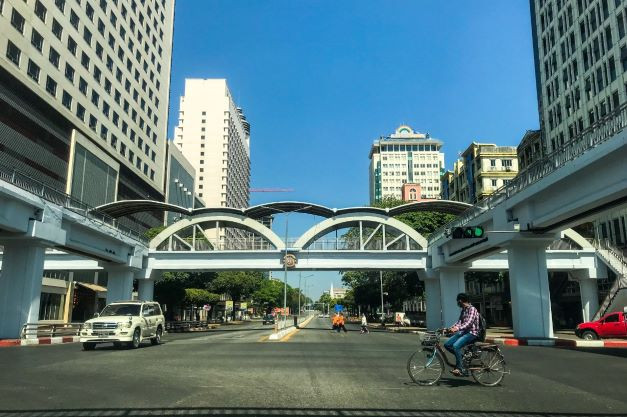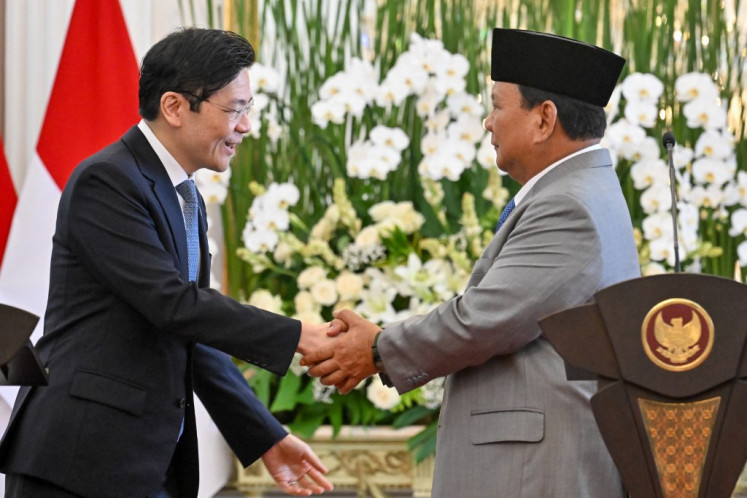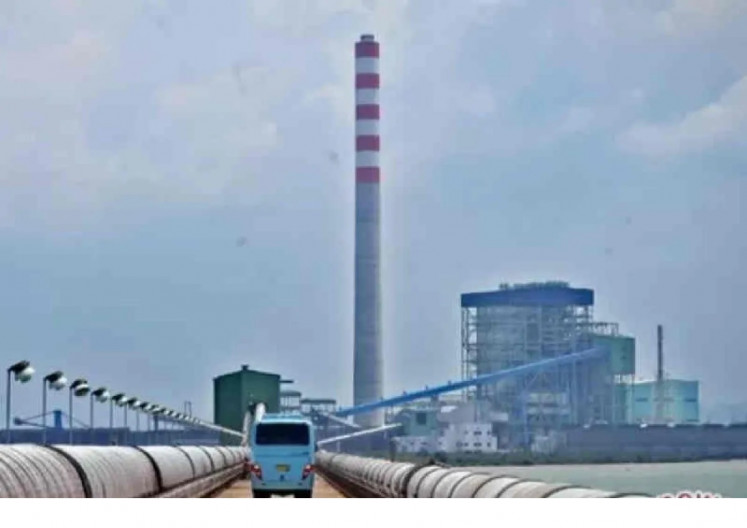Myanmar to accept Thai baht for border trade, eyes using rupee
The arrangements would also help support economic recovery, the statement said, adding that – even with rising energy prices – Myanmar should record "modest" gross domestic product (GDP) growth in the fiscal year ending October.
Change text size
Gift Premium Articles
to Anyone

M
yanmar will start accepting the Thai baht currency for settling border trade transactions and is also looking at a similar plan to use the Indian rupee for such trade, the ministries of information and investment said on Tuesday.
Myanmar's military-controlled government has already said it would also accept China's renminbi as an official settlement currency.
"By reducing dependence on the US dollar, we will mitigate the risk of sudden exchange rate swings due to external geopolitical factors," the ministries said in a statement, adding the move would help reduce inflation caused by the appreciation of the dollar, as reported by Reuters.
The arrangements would also help support economic recovery, the statement said, adding that – even with rising energy prices – Myanmar should record "modest" gross domestic product (GDP) growth in the fiscal year ending October.
Myanmar’s economy has slumped since the army overthrew an elected government a year ago and launched a bloody crackdown on opponents, with a struggle to impose order amid widespread civil unrest and armed resistance from pro-democracy militias and ethnic minority rebels.
Last year, the Central Bank of Myanmar briefly tried tethering the kyat currency to a reference rate against the dollar after a slump in the exchange rate.
The statement accused opponents of trying to trigger distrust in the banking and financial system and said a weaker kyat last year was "stoked by economic sabotage".
Registered merchants along the Thai border with Myanmar could from this month conduct trade based on the kyat-baht exchange rate announced daily by Myanmar's central bank, said the statement.
Thai and Indian authorities did not immediately respond to a request for comment.
Thailand is Myanmar's second-biggest trading partner behind China. Trade in the 2020-2021 fiscal year was worth US$5.3 billion, the statement said.
Myanmar's main exports included gas, metals, pulses, and garments, it said, adding the country mainly imported machinery, transport equipment and manufactured goods from Thailand.
In related development, Thai energy company PTTEP has said it will take over the running of Myanmar's vital Yadana gas field following the withdrawal of global giants Chevron and TotalEnergies in January.
The American and French firms said they would pull out of Myanmar following growing international pressure from human rights groups to cut financial ties with the junta after last year's military coup.
The Yadana gas field in the Andaman Sea provides electricity to Myanmar and Thailand, one of a number of gas projects that Human Rights Watch says make up Naypyidaw's single largest source of foreign currency revenue, generating more than $1 billion annually.
"After the decision of TotalEnergies to withdraw from Yadana project, PTTEP has thoroughly considered taking a step as the successor operator in order to ensure the no interruption of natural gas supply," PTT Exploration and Production Public Company (PTTEP) said in a statement Monday as quoted by AFP.
PTTEP – a unit of Thailand's majority state-owned energy firm PTT – will take control of operations from July 20, saying the "continuity in gas production and preventing disruption to energy demand" was of utmost importance.
The field accounts for roughly 50 percent of Myanmar's gas demand, PTTEP said, and around 11 percent of Thailand's.
In recent weeks, Myanmar has been hit by a series of power outages – forcing people in the commercial capital Yangon to queue for water – with the junta blaming rising gas prices and attacks by anti-coup fighters on infrastructure.
The junta has interests in large swathes of the country's economy, including oil and gas.
Other international firms – including British American Tobacco and French renewable energy firm Voltalia – have also pulled back from Myanmar since February's coup last year.
More than 1,600 people have died in the subsequent military crackdown and 11,000 have been arrested, according to a local monitoring group.









